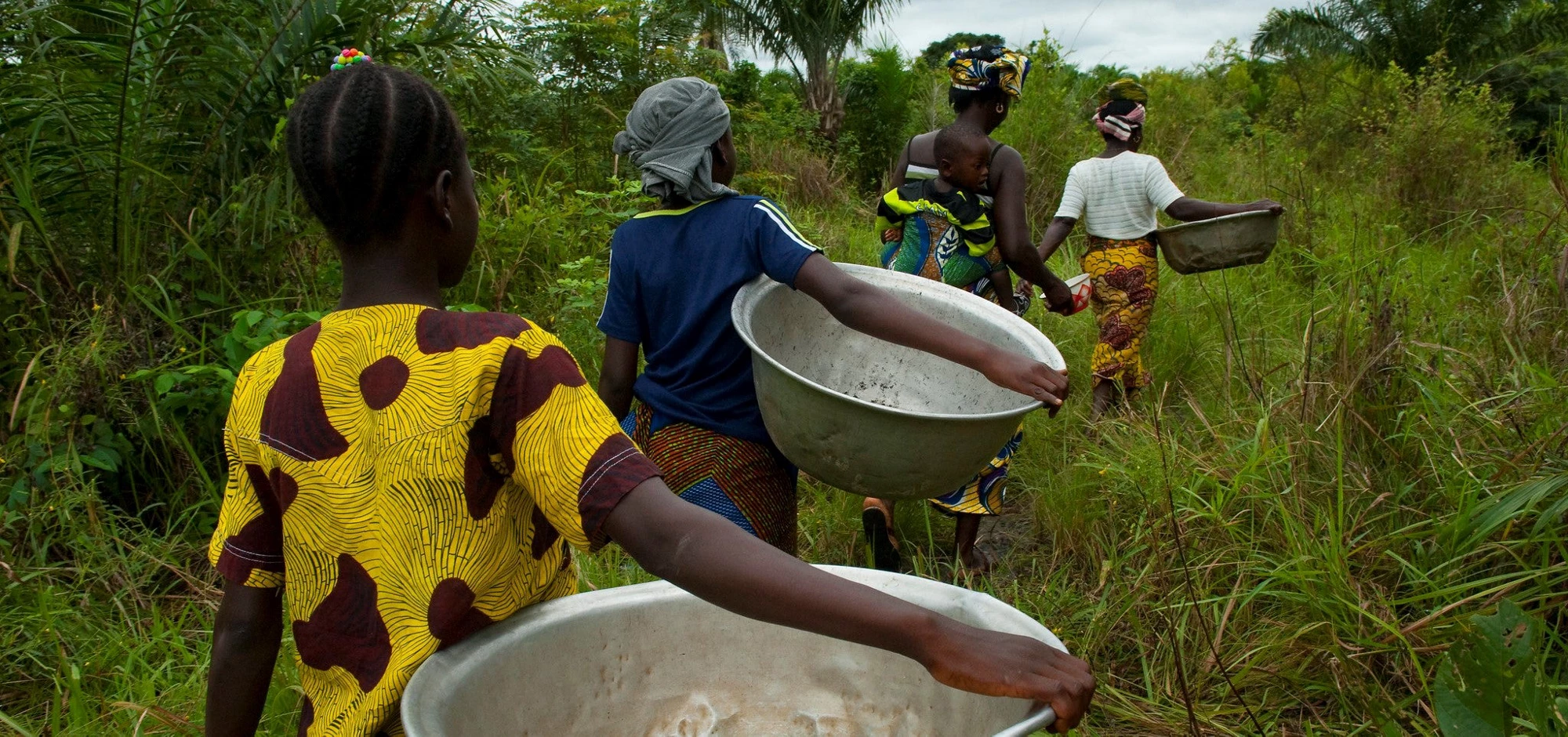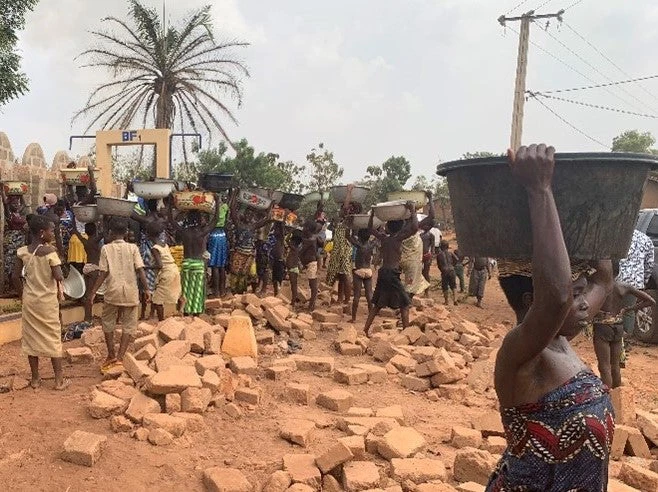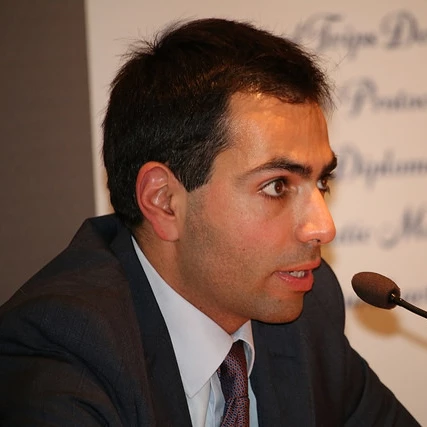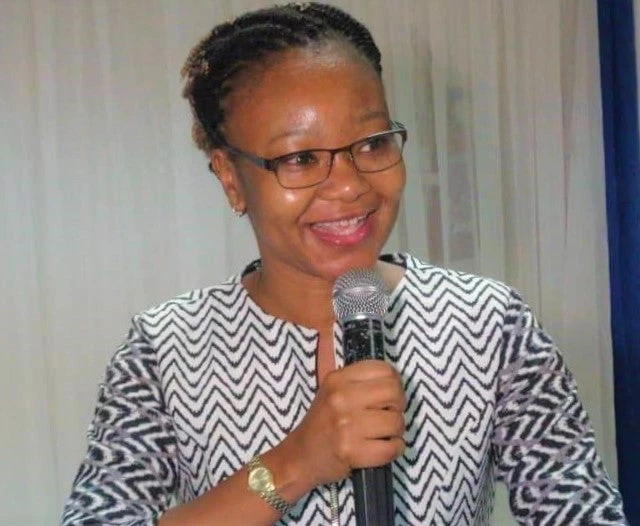 People are getting water in Benin. Photo: Arne Hoel / World Bank
People are getting water in Benin. Photo: Arne Hoel / World Bank
Benin is a small country with big potential. Considered among the best-performing economies in Africa, improving access to water and sanitation are key to sustaining the country’s efforts towards economic diversification and more inclusive growth rates. As of 2022, average service coverage in rural areas stood at 73 percent countrywide, with high disparities across departments—departmental averages range between 52 percent to 96 percent. But the Government of Benin has embarked on an ambitious plan to achieve universal access to rural water supply services by 2030 and is already taking action on its pledge, reflected in its commitment to funding and upstream plans. To support the government in these ambitions, the Global Water Security and Sanitation Partnership (GWSP) is providing technical assistance to the World Bank International Development Association (IDA) - financed AQUA VIE Program for Results (PforR).
Pioneering a new public-private partnership model for improved service delivery
Universal access is not only about construction of water supply systems, but also about guaranteeing the quality of service and professionalism in the management of water supply services. Recognizing this, Benin is pioneering an innovative model of water service delivery. The regional affermage model in Benin is a specific type of management service under which the private operator is responsible for operating and maintaining water delivery services, but not for financing the investment. They replace the earlier municipal and small-scale subsidized concessions contracts that are widely used across the country.
The GWSP supported the preparation of these contracts by reviewing the bidding documents and other related contractual documents. To mitigate the risk of any potential negative environmental or social impact, the GWSP also funded guidelines to define the operators’ required processes for environmental and social management. Two international joint ventures have since signed performance-based affermage contracts with the Government of Benin. The contracts introduce strong incentives for the regional operators to deliver on expanding access and improving service quality and sustainability, as well as reducing non-revenue water and improving bill collection. To help ensure the successfully deployment of the contracts, the GWSP will provide ongoing support through the first years of implementation. Covering three lots (see fig.1), the affermage contracts will directly support the provision of safe and affordable drinking water to more than three million people.
Such performance-based contracts are unprecedented in the region and represent a paradigm shift in the wider rural water sector in Africa. They introduce a mechanism for capturing private resources for system expansion and have the potential to dramatically enhance the sustainability of rural water supply.

An integrated approach to sustainability
Even though surface water sources are abundant in Benin, most of the rural population is reliant on groundwater for its drinking needs, placing significant stress on the country’s groundwater systems. Climate change and population growth are exacerbating this stress, jeopardizing groundwater aquifers’ ability to deliver water into the future.
Recognizing the groundwater security challenges, the GWSP supported a study of the impact of rural water supply systems on groundwater abstractions. The study will help improve understanding about groundwater availability and recharge zones. It will also contribute to the creation of a mechanism to monitor the impact of water withdrawals from the aquifers. Crucially, it will enable informed decision-making and will help ensure an integrated approach when making decisions on water supply services.
Ensuring that gender, social inclusion and capacity are at the heart of water services
There is a large opportunity to address gender issues through the design and delivery of a water supply programs that increase women’s participation at national and local levels. To that end, the GWSP supported an assessment of gender and social inclusion. It focused on both: (i) gender-based differences in access to rural water services and water-related hygienic practices, as well as on (ii) women’s participation in institutions participating in the governance, delivery and supervision of water services and water-related hygienic practices in rural areas. The GWSP also supported the development of a toolbox for water users associations that includes practical tools for setting-up, training and ensuring their sustainability, while also helping to increase citizen engagement, especially of women, in the rural water sector.

Gender and social inclusion go hand-in-hand with building capacity in the rural water supply sector, especially among female water professionals. The sector needs people with capacities that enable them to grow, develop knowledge and resources, and ultimately operate water systems effectively and sustainably. Through the support of the GWSP, a study of human resource requirements in rural water services was conducted, which led to the development of a capacity-building strategy and training courses for network operators and technicians. A training center for rural water supply professionals is currently in development and will soon welcome its first cohort of trainees.
Taken together, the GWSP’s efforts are helping to elevate Benin as a global leader in the development and implementation of affermage contracts, with potentially transformative implications for the region. With sustainability and gender inclusion at the heart of its approach to expanding water services, the country is on track to achieve universal water access by 2030.
____________________________
1World Bank (2021). Benin Gender Assessment. Women participation in economic opportunities and decision making. Washington DC: United States.




Join the Conversation